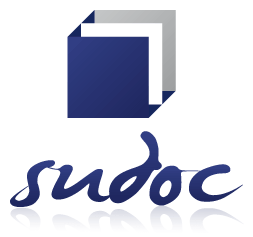Liderazgo responsable como fortaleza de las empresas democráticas
Responsible Leadership as a Strength of Democratic Companies
Resumen
Este estudio tuvo como objetivo general explorar el rol del liderazgo responsable como fortaleza de las empresas democráticas. A través de un análisis exploratorio para lograr el objetivo, se planteó un diseño secuencial en 3 aspectos estructurales: a) teorías del liderazgo responsable con literatura antigua y actual, b) el liderazgo responsable frente a las perspectivas sociales empresariales, c) principales roles del liderazgo responsable pasado y actual. El interés por el liderazgo responsable ha aumentado y ganado una tracción significativa en el ámbito académico, y se ha convertido en el tema central de las preocupaciones modernas en la gestión de liderazgo. En el futuro el liderazgo responsable se fomentará en un entorno clave para la supervivencia organizacional y el éxito de la gobernanza. El líder responsable deberá poner especial énfasis en los más altos estándares de sostenibilidad y la tecnología más avanzada para minimizar el impacto negativo sobre el medio ambiente y la salud y bienestar de las personas.
Descargas
Citas
ELLIS, M. (2020). A Process Theory of Responsible Leadership (Doctoral dissertation, Sheffield Hallam University).
CIULLA, J. B., KNIGHTS, D., MABEY, C., & TOMKINS, L. (2018). Guest editors’ introduction: Philosophical contributions to leadership ethics. Business Ethics Quarterly, 28(1), 1-14.
PUMA, E. G. M. (2022). How universities have responded to E-learning as a result of Covid-19 challenges. Periodicals of Engineering and Natural Sciences (PEN), 10(3), 40-47.
HATEGAN, V. P., & HATEGAN, C. D. (2021). Sustainable Leadership: Philosophical and Practical Approach in Organizations. Sustainability, 13(14), 7918.
DEL CARPIO RAMÍREZ, R. J., & RODRÍGUEZ CAIRO, V. (2022). Liderazgo transformacional: Aspectos éticos para la gestión y administración de la justicia: Transformational Leadership: Ethical Aspects for The Management and Administration of Justice. Revista De Filosofía, 39(101), 287 - 297.
ABBAS, A., CHENGANG, Y., ZHUO, S., MANZOOR, S., ULLAH, I., & MUGHAL, Y. H. (2021). Role of responsible leadership for organizational citizenship behavior for the environment in light of psychological ownership and employee environmental commitment: a moderated mediation model. Frontiers in Psychology, 12.
PLESS, N. M., SENGUPTA, A., WHEELER, M. A., & MAAK, T. (2021). Responsible leadership and the reflective CEO: Resolving stakeholder conflict by imagining what could be done. Journal of Business Ethics, 1-25.
SILVA ORDÓÑEZ, C. A., NARANJO GAIBOR, A. O., & SALAZAR MERA, J. E. (2022). Herramientas de gestión de liderazgo ético dialógico: una oportunidad de desarrollo organizacional para la eficiencia productiva: Dialogical Ethical Leadership Management Tools: An Organizational Development Opportunity for Productive Efficiency. Revista De Filosofía, 39(Especial), 440 - 454.
MCQUADE, A. (2022). Ethical Leadership. In Ethical Leadership. De Gruyter.
MOON, W. K., & KAHLOR, L. A. (2022). Nanoscientists’ perceptions of serving as ethical leaders within their organization: Implications from ethical leadership for responsible innovation. Journal of Responsible Innovation, 9(1), 74-92.
ZHANG, X., LI, D., & GUO, X. (2022). Antecedents of Responsible Leadership: Proactive and Passive Responsible Leadership Behavior. Sustainability, 14(14), 8694.
ESGUERRA, G. A. (2022). Effect of ethical leadership on employee creativity: the state of the art in research. Estudios Gerenciales, 38(162), 109-119.
GONZÁLEZ, J. L. A. (2021). Guía para elaborar el planteamiento del problema de una tesis: el método del hexágono. Revista Arbitrada: Orinoco, Pensamiento y Praxis, (13), 58-69.
GONZÁLES, J. L. A., & DURÁN, H. M. (2021). Elaboración y validación de una escala para medir la capacidad de liderazgo en un entorno de trabajo remoto (CLETR). Contabilidad y Negocios, 16(32), 23-37.
MISKA, C., HILBE, C., & MAYER, S. (2014). Reconciling different views on responsible leadership: A rationality-based approach. Journal of Business Ethics, 125(2), 349-360.
HUO, C., SAFDAR, M. A., AKHTAR, M. W., & AHMED, M. (2022). Linking Responsible Leadership and Green Innovation: The Role of Knowledge Sharing and Leader-Member Exchange. Front. Environ. Sci, 10, 945817.
DONG, W., & ZHONG, L. (2022). How and when responsible leadership facilitates work engagement: a moderated mediation model. Journal of Managerial Psychology.
GUO, K. (2022). The Relationship Between Ethical Leadership and Employee Job Satisfaction: The Mediating Role of Media Richness and Perceived Organizational Transparency. Frontiers in Psychology, 13.
HIDALGO, J. F. O., VALENCIA, S. M., & SAMPIERI, R. H. (2016). El liderazgo y su relación con el Modelo de Valores en Competencia. Telos: Revista de Estudios Interdisciplinarios en Ciencias Sociales, 18(1), 17-38.
CAMACHO, M. J. A., & NIÑO, E. H. A. (2015). El liderazgo humanista ético en las organizaciones. Illustro, 6, 7-20.
MACASSA, G., TOMASELLI, G., & SOARES, J. (2019). Responsible Leadership Behaviour as a Determinant of Stakeholders' Health and Well-Being: A Review and Conceptual Framework. International Journal of Responsible Leadership and Ethical Decision-Making (IJRLEDM), 1(2), 44-63.
ARIAS GONZÁLES, J. L. (2021). Adaptabilidad a las tecnologías de la información, comunicación y procrastinación laboral en colaboradores del sector público en Arequipa. Revista Científica UISRAEL, 8(1), 77-89.
GONZÁLES, J. L. A., & VALERIANO, A. R. (2022). Competencias laborales de los tripulantes en el departamento de restaurante del crucero Costa Luminosa. Cimexus, 16(2), 59-68.
GARCÍA-SOLARTE, M. (2015). Formulación de un modelo de liderazgo desde las teorías organizacionales. Entramado, 11(1), 60-79.
KARP, T. (2003), Socially responsible leadership, Foresight, Vol. 5 No. 2, pp. 15-23.
ARIAS GONZÁLES, J. L., GALLARDO, C., ROGER, M., & CÁCERES CHÁVEZ, M. D. R. (2022). Tecnologías de Información y Comunicación versus Upskilling y Reskilling de colaboradores públicos. Revista Venezolana de Gerencia (RVG), 27(98), 565-579.
MORI SANCHEZ, M. D. P. (2009). Responsabilidad social: Una mirada desde la psicología comunitaria. Liberabit, 15(2), 163-170.
KOVAR, K. A., & SIMONSEN, J. C. (2019). Factors Influencing Socially Responsible Leadership Development in College of Agriculture Students. Journal of Agricultural Education, 60(4), 88-100.
GONZALES, J. L. A., LANCHIPA-ALE, A. P., GUILLERMINA, E., PUMA, M., MANSILLA, E. B. R., & LAURA, P. A. S. (2022). Positive Dimensions of Mental Health and Personality in a Sample of University.
ZHAO, H., & ZHOU, Q. (2019). Exploring the impact of responsible leadership on organizational citizenship behavior for the environment: A leadership identity perspective. Sustainability, 11(4), 944.
ATALLAH, H. K. E. (2021). The Relationship Between Ethical leadership and Corporate Social Responsibility. 11(2), 1-26.
VARRA, L., & TIMOLO, M. (2017). Sustainable Leadership Practices According to International Standards of Corporate Social Responsibility. Electronic Journal of Management, 3, 1-24.
PIÑEROS, R. A. (2018). Liderazgo responsable: ¿cuál ha sido su desarrollo epistemológico? Revista ESPACIOS, 39(24).
KARADAL, H., ADİGUZEL, Z., & ARTAR, M. (2018). Investigation of the mediator effect of strategic management in the relationship between ethics leadership, job satisfaction and intention to leave. Journal of Management Marketing and Logistics, 5(1), 66-77.
MYDIN, K. F., & AMRAN, M. S. (2019). Socially responsible leadership capacity among student leaders. Creative Education, 10(12), 2955.
MUÑOZ, J. L. R., OJEDA, F. M., JURADO, D. L. A., PEÑA, P. F. P., CARRANZA, C. P. M., BERRÍOS, H. Q., ... & VASQUEZ-PAUCA, M. J. (2022). Systematic Review of Adaptive Learning Technology for Learning in Higher Education. Eurasian Journal of Educational Research, 98(98), 221-233.
AYOKO, O. B. (2022). Leadership, Ethics and Corporate Social Responsibility. Journal of Management & Organization, 28(1), 1-8.
WALDMAN, D. A., & GALVIN, B. M. (2008). Alternative perspectives of responsible leadership. Organizational Dynamics, 37(4), 327-341.
PLESS, N. M., MAAK, T., & STAHL, G. K. (2011). Developing responsible global leaders through international service-learning programs: The Ulysses experience. Academy of Management Learning & Education, 10(2), 237-260.
SIEGEL, D. S. (2014). Responsible leadership. Academy of Management Perspectives, 28(3), 221-223.
CHANGAR, M., & ATAN, T. (2021). The role of transformational and transactional leadership approaches on environmental and ethical aspects of CSR. Sustainability, 13(3), 1411.
LIS, A. (2019). Leadership and corporate social responsibility: Mapping the conceptual structure of research. Journal of Corporate Responsibility and Leadership, 6(1), 7-21.
SÁNCHEZ, F., SANDOVAL, A., RODRÍGUEZ-POMEDA, J., & CASANI, F. (2020). Professional aspirations as indicators of responsible leadership style and corporate social responsibility. Are we training the responsible managers that business and society need? A cross-national study. Journal of Work and Organizational Psychology.
STRANDBERG, C. (2009). The role of human resource management in corporate social responsibility issue brief and roadmap. Report for Industry Canada. Burnaby, BC: Strandberg Consulting.
HUSSAIN, N., & ATTIQ, S. (2017). Relationship among Ethical Leadership, Ethical Climate, Corporate Social Responsibility and Performance Outcomes. Journal of Managerial Sciences, 11.
KOVAR, K. A. (2014). Factors influencing socially responsible leadership development in college students (Doctoral dissertation, University of Missouri-Columbia).
SÁNCHEZ, F., SANDOVAL, A., RODRÍGUEZ-POMEDA, J., & CASANI, F. (2020). Professional aspirations as indicators of responsible leadership style and corporate social responsibility. Are we training the responsible managers that business and society need? A cross-national study. Journal of Work and Organizational Psychology.
SZÉKELY, F., & KNIRSCH, M. (2005). Responsible leadership and corporate social responsibility: Metrics for sustainable performance. European Management Journal, 23(6), 628-647.
TUAN, L. T. (2012). Corporate social responsibility, leadership, and brand equity in healthcare service. Social Responsibility Journal.
CANO, M. D. C. A. (2012). El Liderazgo ético del directivo de enfermería en una institución que aspira a Colectivo Moral. Infodir (Revista de Información para la Dirección en Salud), 8(14).
ROBLES FRANCIA, V. H., GURIEVA, N., & ACOSTA VELÁZQUEZ, S. C. (2012). Liderazgo sin moralidad: un estudio correlacional entre el inventario de prácticas de liderazgo (IPL) y el juicio moral. Investigación administrativa, 41(110), 7-17.































